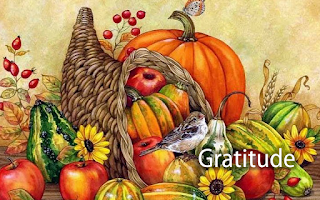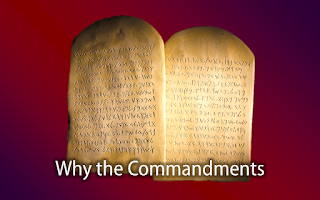Hespeler, 7 October, 2018 © Scott McAndless Communion, Thanksgiving
Genesis 1:27-2:3, Matthew 12:1-14, Psalm 92:1-15
| I |
t was late on the sixth day when the Lord God turned to the newly created humanity and said unto them, “Be fruitful and multiply, and fill the earth and subdue it; and have dominion over the fish of the sea and over the birds of the air and over every living thing that moves upon the earth.” And the Lord God said to Godself, since this responsibility for the Earth has now been passed on to the humans, then I declare that this work of creation is finished. What more do I need to do? The humans can be in charge. I’m sure that will all work out fine. Thus the heavens and the earth were finished, and all their multitude.
And very truly did humanity hear that command and they said one unto another, “Okay, you heard the Creator, we’ve got some work to do! There is a whole world out there to have dominion over and that adds up to a whole lot of filling and subduing. And yes it will be hard but we will subdue the land itself and break it with the plow and the shovel and the backhoe so that we might have dominion over it. We will make the earth produce food and great wealth in precious stones and metals and we will make the land itself a great treasure – real estate, we will call it – and it will become so valuable that it will produce millionaires and even billionaires.
In the same way we wi ll exercise our dominion over the beasts of the earth, we will take them and make them to work for us and we will breed them for our food. We will exercise our dominion over the seas by extending great nets to sweep up all of the fish, we will dig out harbours for trade and pour all of the waste we produce along the way into the waves even until a giant garbage patch of floating plastic forms in the Pacific Ocean.
And our dominion over the air? Well, that might take some time, but eventually we will build great machines that will enable us to fly, like the birds, on the winds themselves, we will take our craft even to the stars and there we will build great satellites which will constantly send information from one place to another and that information also will make huge amounts of money for someone.
And so it was that humanity went to work subduing the land and the sea and the air. And lo, it was very good for it created great amounts of wealth and prosperity for many, if not for all.
But the Lord God looked upon the people that he had made and saw that, though they were fulfilling their destiny, there was something that was just not quite right. For their subduing work brought them great profit and wealth and, while this was a good thing, they found that the more they worked and gathered wealth to themselves, the less they seemed able to rest and to enjoy these good things that they had. Instead they felt a compulsion to gather ever more and more for themselves.
Yes, they had good things, but, as they looked around, some of them saw that their neighbours had more than they did and so they were not satisfied. And there were even some who were able to gather to themselves so much wealth and so many goods that they would never be able to spend or use them all, but still they were not satisfied and they used the influence and wealth that they had in such a way us to favour themselves and they became even richer.
And while they were doing this, they were taking everything that they could from creation. They did not see the need to let the earth or the sea or the air rest or regenerate. They were constantly seeking ways to make the earth produce more and more. They did not rest from pumping their waste materials into the air and the sea. And they pushed the animals and the machines and the men and women who did their hard labour to be ever more productive and even used the technology to make it impossible for people to escape their work and the expectation of productivity it just never stopped. But that was good, right? They were supposed to subdue and have dominion. Wasn’t that what their Creator said that they were made for?
When the Lord God saw this, he recognized that his work of creation was not quite finished. One more thing had to be created. And so it was that the Creator opened up the books of creation and said, I’ve got one more trick up my sleeve. And on the seventh day, the Lord God created rest.
I suspect that many of us are not quite sure what to do with the creation story in Genesis chapter one. Most have probably come to the conclusion that we can’t just read it as a simple historical account. And we at least struggle with the notion that the entire universe was created in six 24 hour days. But I think that is okay because I don’t believe that it was ever meant to be read in that way. It’s not a story about the origins of all things so much as it is about the purpose of all things and it is especially about the meaning and purpose of being human beings in this world. And that commission that God gives to the newly created humans on the sixth day – the command to multiply, subdue and dominate – actually tells me a lot about how we approach our humanity. I wouldn’t just say that God told us to live in this world in that way, I believe that it is a drive that is built into every single one of us. We are in this constant quest to have more and more. We seek to build up wealth because we feel insecure or because it makes us feel important and, left to ourselves, we are not inclined to stop.
I do believe that God placed that drive within us, but God also created us, as the creation story makes clear, with a need for sabbath. That is why we are here. Today is Thanksgiving. It is a wonderful opportunity to stop for a moment and be thankful to God and to the earth and to one another for all the good things that we enjoy. But is being thankful going to be enough? Thankfulness, at least as we often practice it, is little more than a pause in the midst of our work of subduing and dominating in this world.
How often do we experience thanks like that? When someone patronizes your store, for example, contributing to the wealth that you are accumulating, it is not uncommon, at the conclusion of the transaction, for you to say thank you. It is nice, of course, it is polite, but it doesn’t really change anybody and is often quickly forgotten.
You are working on something and ask someone to grab you a tool that you need. They hand it to you, you pause for but a moment to say, “Thanks,” and then you are immediately back to work. Again, that is nice, but is that really what thankfulness is all about.
I am glad to see all of you here today, that you have taken time out of what I know are your busy schedules of subduing and having dominion in all kinds of ways, to say thanks – thanks to God, thanks to everything that has contributed to your prosperity. But is that all it is – is that all we need – a brief pause in all our work to say thanks? The way that we use that word, thanks, may not quite capture what we actually are in dire need of here today so let me propose another word: gratitude.
Thanks can just be a word, but gratitude is an attitude that lingers long after the sound of a word fades away. Thanks can be very polite thing to offer, but gratitude can transform you and the person to whom is it is given. Thanks is sixth day enjoying the blessings of what you have accumulated through your work. Gratitude is Sabbath rest in what you have received whether or not, by the measures of this world, what you have received is considered to be enough.
So let me give you a challenge and encouragement on this Thanksgiving Sunday: be thankful, yes, but even more practice gratitude. The word gratitude comes from a Latin word that means welcome, pleasing and praiseworthy. Gratitude means welcoming everything that you have and celebrating it as a pleasing and praiseworthy gift of God. It is the attitude that God has when God looks out over God’s work at the end of the sixth day of creation and saying, “It is good.” In fact, it is God’s expression of gratitude on the sixth day that actually makes it possible for God to rest utterly and completely on the seventh.
God doesn’t do what we would do and worry about the job that he was doing all week. He doesn’t lying awake saying, “Did I give the octopuses too many legs?” or “What was I thinking making those mosquitoes?” or “What will people think of me when they see the platypus?” No, God knows the goodness in creation and so can rest in whatever has been made. That’s gratitude.
It doesn’t seem to come as easily for us as it does for God. We go about our job of subduing and having dominion but never seem to be satisfied because we cannot receive whatever we receive with a simple attitude of gratitude. We constantly second guess the work that we do, worry that others will judge us for it and most of all we seem to have a hard time learning to be satisfied with what we have. If we could learn to practice gratitude, perhaps we could find true rest – sabbath rest – in this world.
It is kind of odd, when you think about it, that God should give his people an actual commandment, an order, to take a break – observe a sabbath. You would think that we should have figured that one out ourselves – that you shouldn’t keep anything going, much less yourself, forever without a rest. But God knows us better than we know ourselves, God knows that we will tend to drive ourselves to continue to subdue and have dominion because we’re afraid that we won’t have enough or that somebody might do better than us. God knew that you would need to learn to rest in what you have.
I know that sometimes people have treated the sabbath commandment as a burden and as a reason to criticise other people. Jesus ran into that a lot. People criticised him for letting people enjoy themselves with a little bit of free grain or for actually relieving people’s pain and suffering on a sabbath. Jesus rightly pointed out to them that they were really missing the point of the sabbath. Sabbath was not about burden, it was about freedom. It was not about obligation, it was about gratitude. Sabbath was made for humans because we need it, not to hurt us. God gave you sabbath in order to save you from your natural tendency to work to excess. It is an invitation to trust God enough to rest in what you have. That is how God always works, by the way: salvation by grace through faith or trust.
So, when you gather with your loved ones today or tomorrow or, I hope, soon, yes do pause to say thanks – thanks to God and thanks to the earth and to each other. But don’t just leave it there. Practice gratitude together. Take the time to celebrate whatever you have, to welcome it, to savour it. Recognize that whatever you have is a good gift, a divine gift. It is very good. Rest in what you have today, without even thinking about what you might need tomorrow. This is gratitude.























